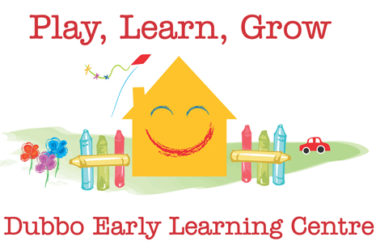Practical Management – Who to talk to about what?
What I find in most services is educators asking the wrong person for help because they don’t know who does what. I’ve talked about runny poo on many occasions because I’ll never forget the time I watched five people waste so much time investigating a child’s runny poo and collectively attempting and failing to decide what the best action was to move forward. When people don’t know who to talk to, they waste their own time and that of all the other people who should not be involved.
Educators
- their roster
- room routines
- training needs
- curriculum eg planning, activities, extending learning, intentional teaching
- children’s portfolios
- learning documentation eg learning stories, child reflections, strength trees, photos
- assessing children’s learning
- room displays
- cleaning responsibilities
- resources and equipment - new or replacement
- difficulties with other team members they can’t resolve directly with the person
- any issues that affect their job
- difficulties managing children’s behaviour
- service operations
- their own special skills, hobbies etc so these may be used to strengthen the curriculum (can be areas not related to childcare)
- policies or procedures
- learning outcomes, NQS elements and Regs
- individual children eg health needs, children’s medication and/or medical plans, interests, comfort routines, family structure
- individual families eg jobs, names, family structure, hobbies, holidays
- how to improve everyday skills and procedures eg teaching, documenting, reflecting, talking to families, managing and interacting with children, identifying behavioural needs, time management
- feedback for Quality Improvement Plan
- templates and forms
- record keeping and filing
- their own special skills, hobbies etc so these may be used to strengthen the curriculum (can be areas not related to childcare)
- children and families that other educators may not know (only appropriate information, nothing that breaks confidentiality or is not needed to be said i.e. gossip)
- things they’ve learnt from training/professional development
- better ways to do things eg including children’s names in the stories they’re reading
- their movements during the day, especially if supervising children. For example I’m taking Ava in for a Nappy Change now…I’m taking these four children to the printer to get or learning stories.
- curriculum eg planning, activities, extending learning, intentional teaching
- compiling children’s portfolios
- completing learning documentation eg learning stories, child reflections, strength trees, photos
- assessing children’s learning
- their reflective practice and critical reflections
- their own special skills, hobbies etc so these may be used to strengthen the curriculum (can be areas not related to childcare)
- learning outcomes
- policies and procedures
- learning outcomes, NQS elements and Regs
- curriculum eg planning, activities, extending learning, intentional teaching
- compiling children’s portfolios
- completing learning documentation eg learning stories, child reflections, strength trees, photos
- assessing children’s learning
- making beautiful room displays
- their cleaning responsibilities
- their knowledge about individual children eg their health needs, medication and/or medical plans, interests, comfort routines, family structure
- their knowledge about individual families eg jobs, names, family structure, hobbies, holidays
- everyday skills and procedures eg teaching, documenting, reflecting, talking to families, managing and interacting with children, nappy changing and toileting, the correct way to complete an incident/accident form if they were a witness
- templates and forms used
- record keeping and filing
- personal illness, injury etc that affects their work
- difficulties with other team members that they can’t resolve directly with the person or with the help of the Room Leader
- any issues that affect their job if Room Leader can’t resolve them
- pay issues
- qualifications eg updating First Aid or Child Protection Clearance, working towards qualifications
- enrolment of children information relevant for their room
Trainees
- rosters
- policies and procedures
- learning outcomes, NQS elements and Regs
- curriculum eg planning, activities, extending learning, intentional teaching
- compiling children’s portfolios
- learning documentation eg learning stories, child reflections, strength trees, photos
- assessing children’s learning
- making beautiful room displays
- cleaning responsibilities
- individual children eg their health needs, medication and/or medical plans, interests, comfort routines, family structure
- individual families eg jobs, names, family structure, hobbies, holidays
- how to improve everyday skills and procedures eg teaching, documenting, reflecting, talking to families, managing and interacting with children, nappy changing and toileting, how to complete incident forms
- templates and forms used
- record keeping and filing
- service operations
- holiday plans
- pay issues
- qualifications eg working towards qualifications
- sick leave
- personal illness, injury etc that affects their work
- difficulties with other team members that they can’t resolve directly with the person or with the help of the Room Leader
- holidays
Room Leaders
- relevant policies and procedures eg nappy changing and toileting
- learning outcomes, NQS elements and Regs
- basing daily program on family input and children’s lives, extending learning, intentional teaching
- compiling children’s portfolios
- completing learning documentation eg learning stories, child reflections, strength trees, photos
- assessing children’s learning
- making beautiful room displays
- their cleaning responsibilities
- their knowledge of individual families eg parents’ names and jobs
- everyday skills and procedures eg documenting, reflecting, talking to families, managing and interacting with children teaching, identifying behavioural needs, time management, how to complete incident forms
- rosters
- their training needs
- room routines
- curriculum eg planning, activities
- resources and equipment - new or replacement
- managing children’s behaviour
- service operations eg information they’ve learnt that team members may not know
- their own special skills, hobbies etc so these may be used to strengthen the curriculum (can be areas not related to childcare)
- policies or procedures
- learning outcomes, NQS elements and Regs
- individual children eg their health needs, medication and/or medical plans, interests, comfort routines, family structure
- individual families eg jobs, names, family structure, hobbies, holidays
- feedback for Quality Improvement Plan
- information they’ve learnt about children and families
Families
Families talk to Nominated Supervisor about:
- issues they can’t resolve with Room Leader
- service operations
- complaints, suggestions, feedback
- obtaining information to support parenting and families
- problems with educators they can’t resolve with the Room Leader
- complaints related to the Room Leader
- content of policies and procedures
Families talk to Administration Manager about:
- enrolment
- fee payments
- child’s attendance
- planned holidays
- updated information eg current enrolment, immunisation, emergency contact details
- service operations
- parent information library
- location of policies and procedures
Families talk to Room Leader about:
- their child’s learning and development
- what’s in learning program
- their child’s learning records
- their child’s friendships and groups
- their child’s social interactions
- behaviour issues
- service operations
- obtaining brochures or contacts which support parenting and families
Administration Manager
Administration Manager talks to Room Leaders about:
- updated information for children and families (relevant to teaching and relationships)
- students, volunteers and relief staff
- location and supply of forms and templates
- filing of records
Administration Manager talks to Educators about:
- qualifications eg updating First Aid or Child Protection Clearance, working towards qualifications
Administration Manager talks to Nominated Supervisor about:
- complaints, suggestions, feedback
- late fees
- budget
- relevant staffing issues eg staff holidays
- students, volunteers and relief staff
- staff rosters
- new enrolments
- terminating families
- occupancy rates
Nominated Supervisor
Nominated Supervisor talks to Administration Manager about:
- students, volunteers and relief staff
- financial information eg budget
occupancy rates
Nominated Supervisor talks to Room Leader about:
- difficulties with staff they can’t resolve directly with the person
- training needs – their own and those of educators and trainees
- management of room
- children’s curriculum, learning documentation and portfolios
- communication with families
- feedback for Quality Improvement Plan
Nominated Supervisor talks to Educational Leader about:
- children’s curriculum, learning documentation and portfolios
- communication with families
- educators’ training needs

